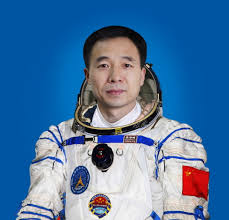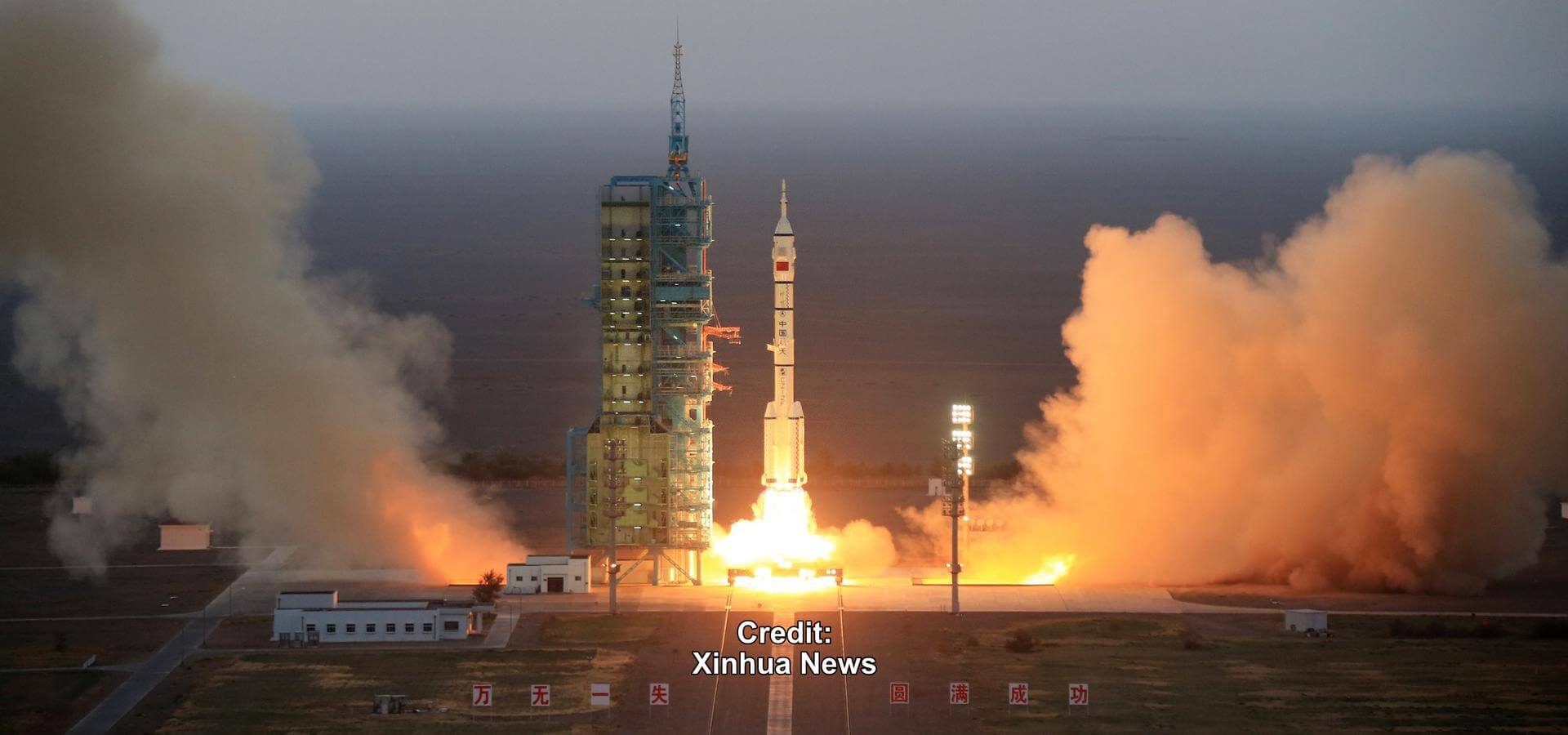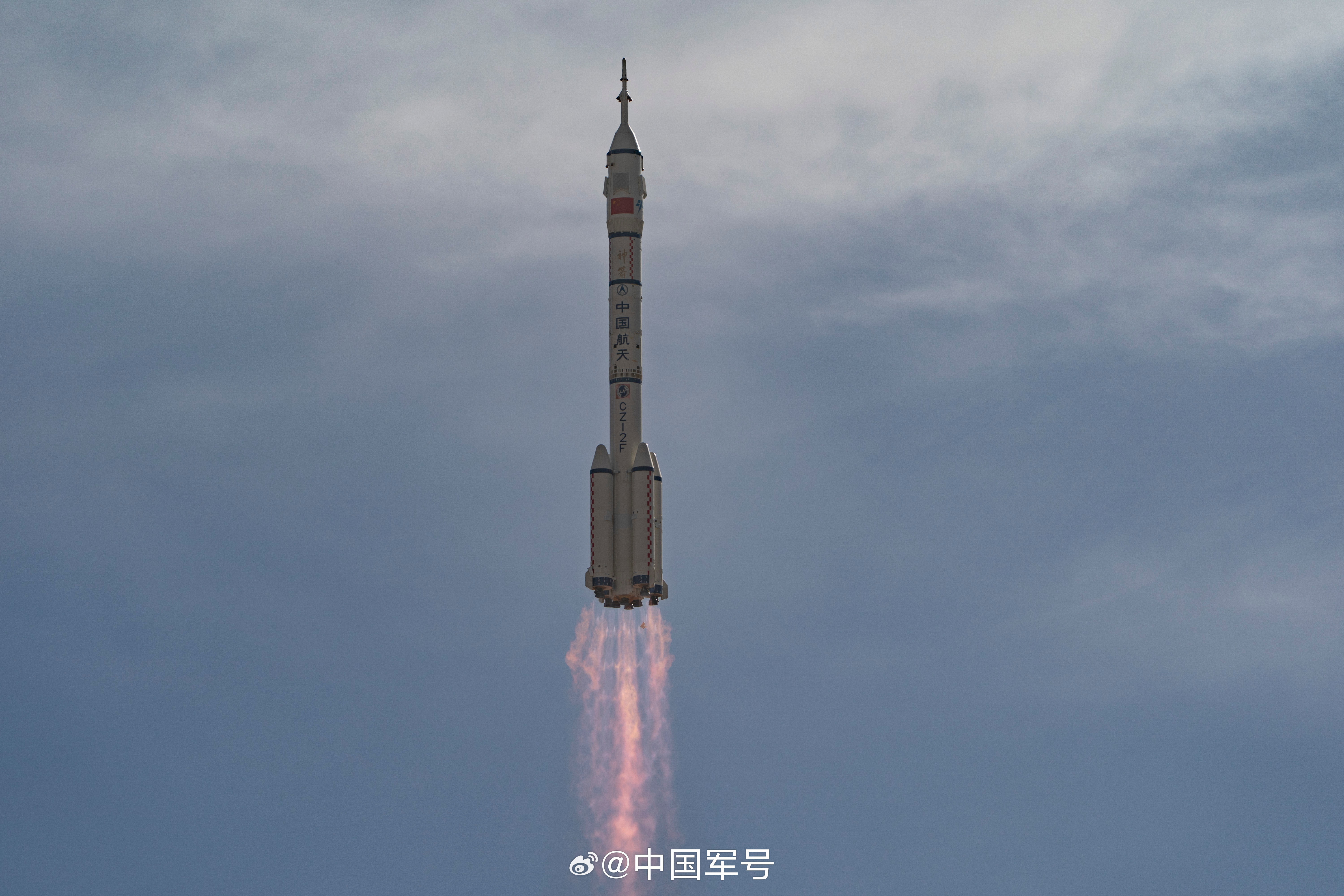Jing Haipeng
Chinese - (CNSA)
Active
Date of Birth: Oct. 24, 1966
Age: 59
Jing Haipeng (simplified Chinese: 景海鹏; traditional Chinese: 景海鵬; pinyin: Jǐng Hǎipéng; born October 24, 1966) is a Chinese pilot and astronaut selected as part of the Shenzhou program. A fighter pilot in the People's Liberation Army Air Force, he was selected to be a CNSA astronaut in 1998. He is the first Chinese astronaut to have flown on three missions: Shenzhou 7, Shenzhou 9 and Shenzhou 11.
Long March 2F | Shenzhou-7
China Aerospace Science and Technology Corporation | ChinaJiuquan Satellite Launch Center, People's Republic of China
Sept. 25, 2008, 1:10 p.m.
Status: Success
Mission:
This is the third crewed mission for China's Shenzhou program. Shenzhou-7 began its mission by bringing Zhai Zhigang, Liu Boming and Jing Haipeng into low Earth orbit. It was the first Chinese mission to have a three-person crew. During their 3 days in orbit, astronauts performed a number of tasks, including the first Chinese EVA carried out by Zhai Zhingang and Liu Boming. Shenzhou-7 deorbited and landed safely back on Earth on 28 September.
Low Earth OrbitLong March 2F/G | Shenzhou-9 & Shenzhou-9-GC
China Aerospace Science and Technology Corporation | ChinaJiuquan Satellite Launch Center, People's Republic of China
June 16, 2012, 10:37 a.m.
Status: Success
Mission:
This is the fourth crewed mission for China's Shenzhou program which lasted 12 days. Being the first crewed spacecraft to visit the Tiangong-1 space station, it brought up the astronauts Jing Haipeng, Liu Wang and the first Chinese female astronaut Lie Yang. They docked automatically to the station on 18 June. During their stay in the station, astronauts conducted various scientific and technological experiments, and performed manual re-docking on 24 June. Shenzhou 9 undocked on 29 June and landed safely back on Earth the same day.
Low Earth OrbitLong March 2F/G | Shenzhou-11
China Aerospace Science and Technology Corporation | ChinaJiuquan Satellite Launch Center, People's Republic of China
Oct. 16, 2016, 11:30 p.m.
The China National Space Administration (CNSA) is the national space agency of the People's Republic of China. It is responsible for the national space program and for planning and development of space activities. CNSA and China Aerospace Corporation (CASC) assumed the authority over space development efforts previously held by the Ministry of Aerospace Industry. The CNSA has many launch sites around China with their orbital sites located in Jiuquan, Xichang, Taiyuan and Wenchang.
Ariane 64
Amazon Leo (LE-01)
Ariane Launch Area 4 - Guiana Space Centre, French GuianaAmazon Leo, formerly known as Project Kuiper, is a mega constellation of satellites in Low Earth Orbit that will offer broadband internet access, thi…
Vulcan VC4S
USSF-87
Space Launch Complex 41 - Cape Canaveral SFS, FL, USAUSSF-87 will launch two identical Geosynchronous Space Situational Awareness Program (GSSAP) satellites GSSAP-7 and GSSAP-8 directly to a near-geosyn…
Proton-M
Elektro-L No.5
81/24 (81P) - Baikonur Cosmodrome, Republic of KazakhstanElektro-L is a series of meteorological satellites developed for the Russian Federal Space Agency by NPO Lavochkin. They are designed to capture real…
Smart Dragon 3
PRSC-EO2 & 6 satellites
South China Sea (launch location 3) - Haiyang Oriental SpaceportCarried 7 satellites to sun-synchronous orbit, including PRSC-EO2 (Earth observation satellite for the Pakistan government's SUPARCO) & CUHK-1. Detai…
Falcon 9
Starlink Group 17-34
Space Launch Complex 4E - Vandenberg SFB, CA, USAA batch of 24 satellites for the Starlink mega-constellation - SpaceX's project for space-based Internet communication system.




